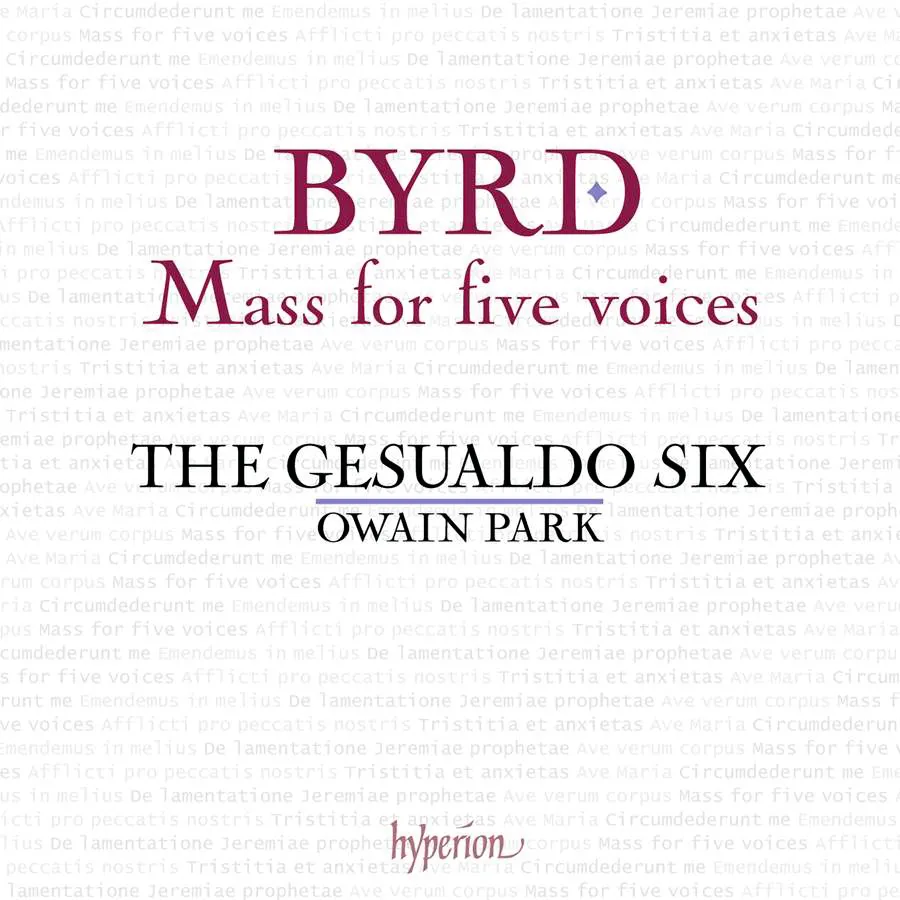
Byrd Mass for Five Voices; Tristitia et anxietas; Lamentations of Jeremiah; Ave verum corpus etc The Gesualdo Six/Owain Park Hyperion CDA68416 64:19 mins
Composed around 1594, Byrd’s Mass for Five Voices was intended for the clandestine, domestic worship of Catholic recusants in then-Protestant England. It is, therefore, a profoundly intimate, private work: spare and lucid, evoking – as director Owain Park suggests – ‘a group in conversation’. This one-to-a-part performance by the male consort Gesualdo Six affectively captures its confidential, chamber-like quality. The Mass text is delivered with a rare clarity and immediacy, highlighting Byrd’s subtle but poignant word-painting.
The singers precede and intertwine the movements of the Mass with several of Byrd’s motets, beginning with his famous Ave verum corpus. Their hushed, reverential reading conveys its mystical nature. Then, there are penitential works, like Afflicti pro peccatis nostris, whose liquid lines are pierced with anguished dissonances; Tristitia et anxietas, whose quasi-whispered text unfurls like a scroll; and the hauntingly beautiful Circumdederunt me, in which the voices weave a shroud of velvet sound as they reflect on ‘the sorrows of death’. Maintaining the penitential tone is Byrd’s highly charged setting of the Lamentations of the ‘weeping prophet’ Jeremiah, its incomplete tenor part stylishly reconstructed here by Owain Park.
Throughout, the ensemble sings flawlessly, the lower voices providing sonorous foundations over which the upper voices float and soar. Park coaxes deeply expressive accounts, in which the pervasive themes of grief and penitence are ultimately transcended by the unwavering optimism of faith. The recording’s close-perspective captures textual and musical details while the resonant church acoustic adds a lovely bloom.
Kate Bolton-Porciatti